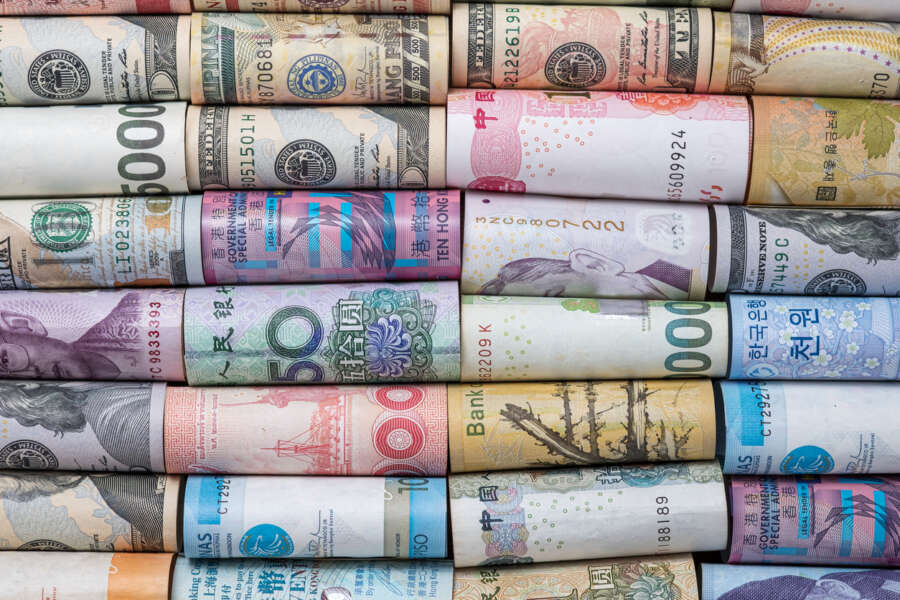
By Adrian Brink, Co-Founder of Anoma
The global economy is tanking. The Ukraine war has disrupted the supply of commodities that power our homes and industries. Rampant inflation has many people asking: “How far will our money stretch next month?”
These ongoing difficulties also raise a different question “ is there a problem with the way money works for society?” The answer is “yes”. Few people pause to reflect on the hidden costs of money, which result from our limited and unaware relationship with the familiar currencies we carry around in our wallets.
The Hidden Cost of Money
There’s no denying that money is convenient. It’s an easy-to-carry proxy that is generally perceived as a useful instrument for quickly determining the relative value of different goods and services.
However, people have become so comfortable with this method of commerce that they fail to spot that it also acts as a smokescreen, creating an invisible barrier between purchasers and the goods they are buying.
By reducing, for example, things like food and water to standard units of account, we have become disconnected from the extensive implications of our choices when we spend our money and how they impact things far beyond the sole thing we buy.
Our reliance on money has resulted in consumers demanding cheaper goods and producers striving for greater profits – at the expense of laborers and the environment. Money’s abstractness from the things it represents has distorted our perception of true value.
Every transaction is digitally monitored, processed and parsed for data that sends signals down the line from consumer to retailer, manufacturer and supplier of raw materials. Money fails to capture the full implications of economic agents’ behavior, meaning that people are often unaware that when they purchase something, this purchase may have implications that ultimately don’t align with their beliefs or intents.
Control and Privacy
Money has not freed us at all. Instead, we have become entombed by the centralized manner of money creation, government control and exploitation by powerful corporate entities.
It’s time to redefine money and to re-create the broken linkages between sellers, buyers and the entire supply chain of trade and commerce.
The recent digital revolution, dominated by a few powerful companies, has accelerated the dislocation between people and money. The latest wave of digital innovation, based on decentralized blockchain infrastructure, has been billed as having the power to reverse this trend by restoring sovereign purchasing power to individuals by giving everyone the choice to determine the true value of the goods they buy and sell.
Blockchain aspires to break free from the constraints that are imposed by the current monetary system. But blockchains have their own weakness – they can actually contribute to the increasing erosion of privacy.
Permanent, transparent ledgers of all transactions are a goldmine for data harvesters and central agencies eager to impinge on our individual liberties. Tenacious adversaries using sophisticated digital tools have made a mockery of the blockchain anonymity myth. Ironically, many blockchains have become a Trojan horse that can easily be exploited.
The truth is that open and free markets built on blockchains could be ripe for exploitation. Luckily, technology can fight back against such intrusions. It is still possible to create a new digital environment in which stakeholders calculate their own valuation of goods according to their personal principles, and can easily trade using a variety of currencies, both fiat and digital assets, or simply swap goods and services according to their individual requirements.
This starts by breaking down the artificial walls of centralization, which mandate that currencies belong to the rulers of each country, create impediments to cross-border trade, misrepresent real value and harvest our data to use against us.
Decenralization and ZKPs
A technology called Zero-Knowledge Proofs (ZKP) is in the vanguard of a new line of defenses that can preserve privacy in even the most transparent digital markets.
ZKPs can act as an effective shield of individual privacies within groups of transacting parties. The technology achieves this by allowing parties to transact without revealing any sensitive or revealing information ..
A person who wants to show they are of the minimum age to enter a bar needs only to show this precise information – a simple “yes” or a “no”. It’s not necessary to reveal your name, address or even your exact birthdate. These are superfluous pieces of personal data that the bar staff do not need to know to determine if they can serve you a drink.
The same concept can be applied to trading. Does Person A have the funds to cover a transaction: yes or no? It’s not necessary to reveal exactly how much money they have. Groups of traders may also want to hide their trading positions to avoid alerting rivals to their strategies. But they still need to trade with rivals. ZKPs allow the trader to reveal specific information relevant to a counterparty without revealing anything except whether the prover is telling the truth or not.
Revealing specific information to selective counterparties can also help people make informed decisions. Which goods meet my personal environmental standards? What is the origin of a particular product?
In this way, it’s possible to create an open market that both respects privacy and allows individuals to fine-tune their settings to interact on their own terms.
This would break the bonds of servitude that are currently imposed on us by money and redefine our relationship with the unit of account.


